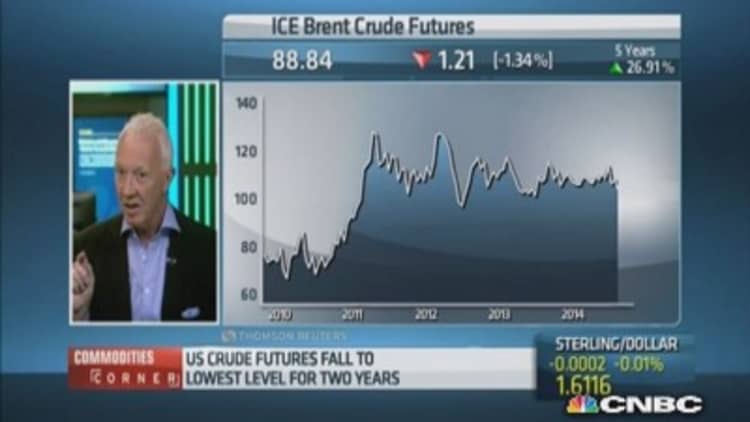The oil price could face further downward pressure as a warmer winter is expected to hit demand further, the supplier of about 40 percent of the world's oil warned.
Official forecasts expect heating degree days in the U.S. to be 12 percent lower than last winter, implying lower demand, the Organization of Petroleum Exporting Countries (OPEC) said in its monthly oil market report as Brent traded close to a four-year low.
Read MoreWinter is coming—and so is $100 oil
At the same time, OPEC said the weather has been less of a factor determining U.S. fuel consumption, as heating oil now contributes below 20 percent of the demand for "middle distillates" or medium weight refined oil products in the country.
Brent crude fell below $90 on Friday, as supply rises and markets digested more grim economic news, with analysts now slashing their oil price forecasts.
Read MoreSaudi signals price skirmish as oil heads to bear market
The free fall in the oil price has increased pressure on OPEC members to take action to cut supply, which analysts said is unlikely before its meeting at the end of November. But Saudi Arabia has shown reluctance to cut production at the risk of losing market share to other countries.

The 12-member cartel reiterated its forecast for 2015, which estimates demand for OPEC crude at 29.2 million barrels per day, down 0.3 million barrels a day from the estimated 2014 level.
Head of analysis at Lloyd's List Intelligence, Neil Atkinson said Brent's new range would lie between $75-$90 per barrel, comparing current market conditions to that of 1986 when OPEC was forced to drastically cut production.
Read MoreWhy currency wars could stave off a Fed rate hike
"In 2014 the debate is once again about what OPEC will do to put a floor under price. But circumstances have changed. Today, only Saudi Arabia has any significant scope to cut production. In 1986 all members did," he said.
"With economic growth weakening and oil demand following suit alongside rising global oil supply there is only one way for prices and that is down," he added.


